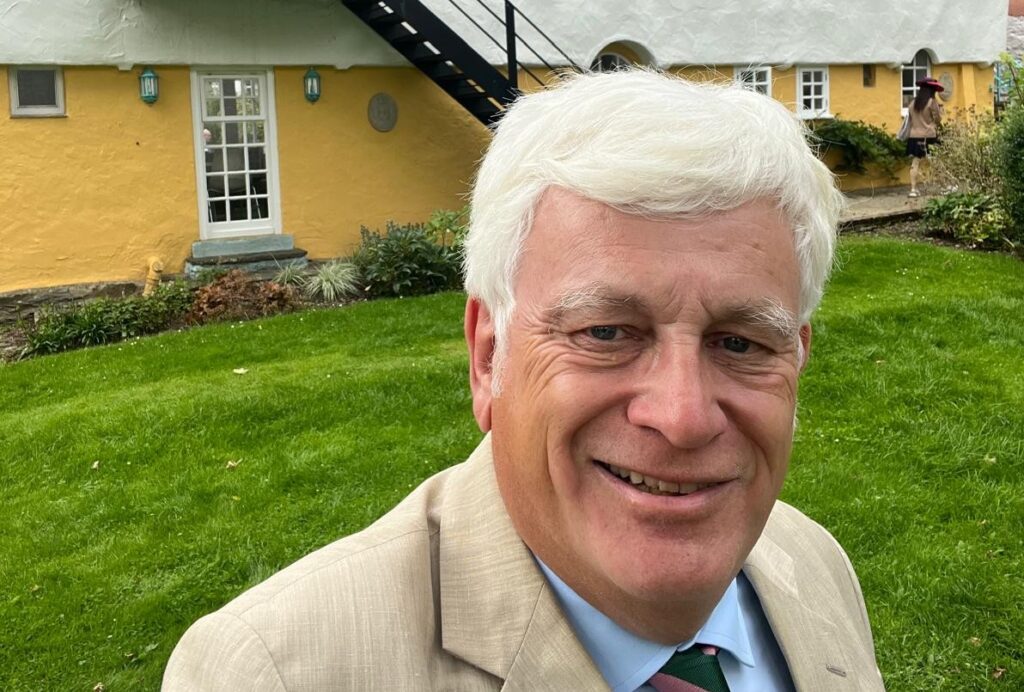Grace Caldwell (undergraduate in Philosophy and Ethics at Kings College, London) joined us for a week of work experience. Read about her reflections of her week with the team, and financial planning more generally here.
The Stoic Approach to Wealth
Money may sit in numbers and charts, but it’s true significance lies in the lives it influences. During my week with the team at Westley’s Financial Planning, attending client meetings and working alongside advisors, I discovered that financial planning is far richer than the arithmetic I had expected. As a philosophy and ethics student at King’s College London, I had initially imagined finance as primarily transactional, focused on percentages and projections. Yet what I encountered was strikingly different: a discipline that felt closely aligned with philosophical and ethical thinking. In the meetings I observed, clients’ anxieties were rarely about the numbers themselves, but the imagined risks those numbers seemed to present and the advisors’ work was as much about guiding minds as managing money.
One meeting in particular stood out. A client arrived with visible disappointment in the financial advice they had previously received elsewhere, trust already frayed. Their fear was clear, that market volatility might erode the wealth they had worked so hard to build, leaving their children’s future uncertain. Lee, the firm’s leader, handled this not with hollow reassurance, but with candour and composure. Reminding the client that short-term turbulence is inevitable, but the long arc of disciplined accumulation endures. A phrase of his stuck with me, ‘Every financial storm may sound different, but at its core it is the same challenge – and it passes’. The subtle blend of realism and reassurance shifted the entire atmosphere. Together, they acknowledged that adjustments were needed to the portfolio, however these were framed not as defeats, but as steps to strengthen the long-term plan. In this scenario, Kinder’s Questions were subtly woven into the discussion, prompting reflection not only on financial position, but on life priorities, values and what truly mattered. In the end, the focus was clear, securing the children’s future and resisting short-term noise in the market.
Witnessing this exchange transformed my understanding of financial planning. It was not merely the transfer of technical knowledge, but a dialogue rooted in philosophy. Drawing on Kant’s maxim that individuals must be treated as ends in themselves – never merely as means – was evident in how Lee engaged. He did not override the client’s anxieties with cold data; he treated those concerns as rational, valid and worthy of thoughtful consideration. Kinder’s Questions deepened this ethical reflection, enabling the client to articulate goals that transcended purely financial targets. Half the work was financial structuring, but the other half was psychological, restoring calm, rebuilding trust and shifting the perspective away from fear, reminding me of Seneca, ‘We suffer more in imagination that in reality’. A skilled financial planner’s role, therefore, is not only technical repair, but an emotional one, pushing clients towards a renewed sense of purpose.
The experience of observing the client’s meeting evidenced to me that financial planning is in fact profoundly philosophical. It is not about predicting markets with supernatural precision, instead it aligns money with meaning, strategy with values. As Aristotle reminds us, ‘The life of money is not the life of man’, wealth is only ever a tool, valuable when it serves the flourishing of individuals and families. Additionally, I was impressed by the seamless integration of philosophy, ethics and finance through quiet authority. For me, as someone entering a field too often caricatured as detached and masculine, this was enlightening: proof that financial planning can be rigorous without being ruthless and deeply human while still guiding lives capable of weathering any storm.
Guiding with Integrity: The Ethics of Financial Care
During the week, it became apparent to me that ethics in financial planning is rarely written in rules; it is inscribed in the choices we guide, the anxieties we soothe and the futures we help shape. Entering Westley’s offices, I anticipated ethics to be dominated by regulations and procedural checklists, where compliance eclipsed human consideration. Yet the reality was deeply different. John Rawls’ vision of justice as fairness and moral consideration resonated with the practice I observed. I realised, each interaction was a moral exercise, requiring attentiveness to human concerns that could never be captured in a policy manual alone.
A particularly illuminating encounter involved a couple whose retirement objectives were less centred on maximising returns and more about ethical alignment. Central to their strategy were sustainable investment funds, portfolios meticulously structured upon supporting corporations reflective of their moral compass. These were not mere token gestures toward ethics; sector exposure, carbon intensity, governance quality and ethical screens were all carefully evaluated, reflecting a sophisticated moral architecture built into financial planning. Ethical decision-making, I noticed, is not about formulaic prescriptions but about constructing a bespoke moral framework around each client. The couple’s focus on protecting their wealth in a way which promoted their political and ethical world view signalled to me the importance people place on maintaining their beliefs throughout all areas of their lives, including finance, which I must admit did take me by surprise. The morality present in the discussion, I found to echo Plato’s hierarchy of goods, where higher principles central to one’s being, outweigh immediate worldly advantage. It was a vivid reminder that wealth, when directed consciously, can be a vehicle for both personal fulfilment and ethical expression.
Another session brought a different behavioural dimension to the table, blending practical guidance with empathy. A client, anxious about Trump’s tariffs and market volatility, sought reassurance regarding an additional property investment. Drawing on Carol Gilligan’s ‘Ethic of Care’, I observed that financial advice requires attentiveness, relational understanding and responsiveness to the client’s specific concerns. Lee approached the session as a guide rather than a director, contextualising market fluctuations, explaining diversification, liquidity and risk allocation in ways that tied directly to the client’s concerns. The emotional arc was palpable: from tension and uncertainty to measured confidence and clarity. Lee’s subtle humour – reminding her that not every headline deserves panic – humanised the session and reinforced that ethical guidance is as much about perspective and trust as it is about numbers.
Such interactions crystallised a vital lesson, ethical financial planning is inseparable from technical expertise. Attentive listening, moral attunement to client values and a nuanced understanding of their anxieties are not additional skills, they are core to effective practice. The most powerful guidance harmonises prudence with moral sensitivity, ensuring that every recommendation is both technically sound and ethically aligned. Wealth is not an end in itself but a vessel to realise values, protect what is cherished and create purpose. Ethical practice elevates financial guidance from transactional mechanics to a disciplined craft that shapes lives to achieve one’s hopes and dreams.
Wealth as a Mirror
We are taught to see wealth as a measure of success, but perhaps it is more accurately a measure of integrity, of the coherence between our actions and our values. Financial planning, as I have come to understand, is not merely the application of technical skill or market insight; it is a medium through which ethical principles are enacted, a living practice that gives shape to intention, trust and human flourishing. Trust in this context is dynamic, cultivated, sustained and performed in every decision and conversation, enabling financial guidance to become an extension of the client’s moral framework. Wealth, then, ceases to be neutral; it becomes a mirror reflecting priorities, concerns, and aspirations. For example, when clients choose to allocate resources toward sustainable investments, they are not simply optimising returns, but engaging in a dialogue with their values, committing to principles that transcend immediate gain.
These decisions embody Aristotelian eudaimonia, the concept of human flourishing that encompasses living virtuously, fulfilling one’s potential and achieving a harmonious balance between practical action and moral purpose. In this sense, wealth is a tool for cultivating the good life: it enables freedom, security and the pursuit of activities that enrich character and promote well-being for oneself and others. In practical terms, ethical financial planning demands a transformation of portfolio decisions into acts that express and reinforce philosophical principles. Each allocation, adjustment, or strategy is an exercise in translating abstract reflection into concrete outcomes, a bridge between intention and action, principle and practice. By guiding clients to align their wealth with their values, advisors participate in a form of moral craftsmanship, ensuring that resources do not merely accumulate but serve as instruments for living a good life. Money, therefore, is never inert; it is an ethical lens, a medium through which clients enact their highest principles and a mirror revealing the lives they aspire to lead. Financial planning turns values into power.



